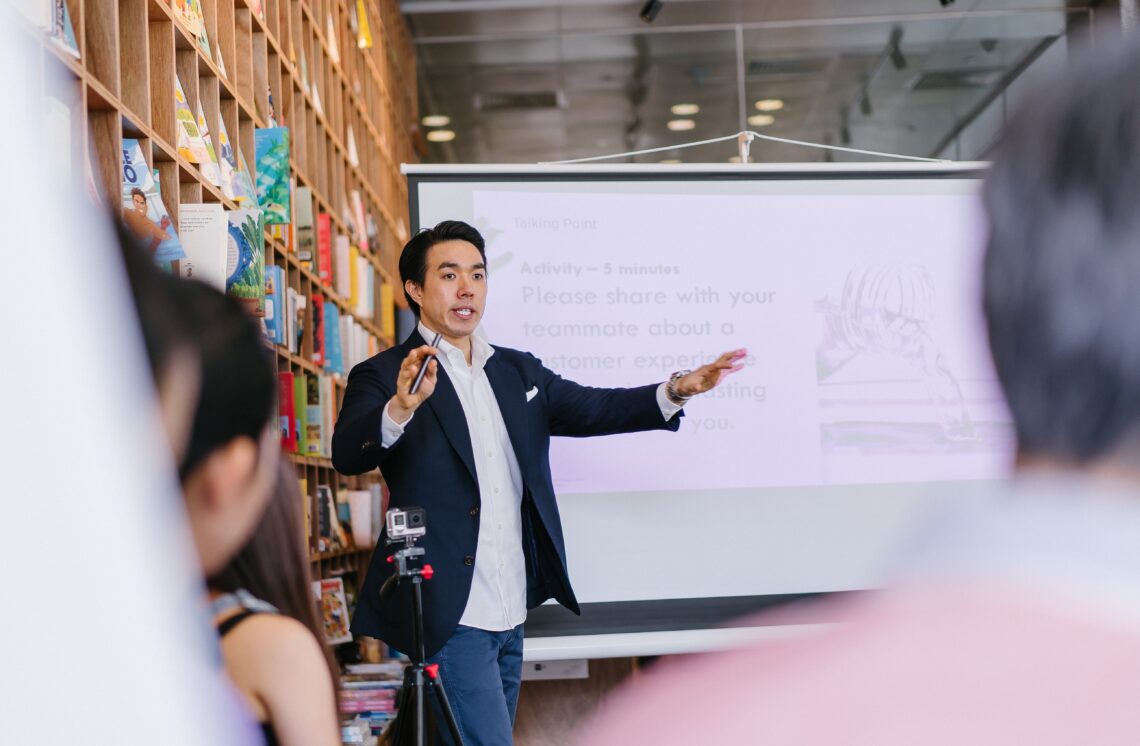
Are you called to be an intellectual?
Jessica Hooten Wilson says, “Be brave! The world needs your inquiring mind.”
I hope students will throw themselves into divisive conversations robustly. Call nonsense what it is when you hear it. Offend everyone around you with the truth. Do not fear to pursue the intellectual life with vigour. I am certain the world is hungry for more courageous and selfless women and men to learn, to know, and to speak truth.
When I consider the question Phillip Dolitsky posed recently in an open letter to Public Discourse – the journal of the Witherspoon Institute based in Princeton, New Jersey – “Is the scholarly life still worth pursuing?”, I do so from a perspective of vocation. The word ‘vocation’ has been co-opted by technical training programmes to mean the majors or degrees that supposedly prepare you for a specific job. But the word actually means ‘calling’.
Metaphorically, vocation requires more than one person: a listener as well as a caller.
Frederick Buechner defines vocation this way: “The place God calls you to is the place where your deep gladness and the world’s deep hunger meet.”
How do we discern what we are being called to? While vocation involves more than work, I will limit its scope to work here, for the sake of Dolitsky’s question. What does it mean to be called to a specific type of work? If we submit to Buechner’s definition, the greatest indicators of calling are your ‘deep gladness’ and the ‘world’s deep hunger’.
Put simply, your talents should be invested in for the sake of the world’s needs.

Identifying your talents and the world’s needs
In a Twitter thread that discussed this query about the scholarly life, Tim O’Malley encouraged those who desire to pursue the intellectual life to study for a doctorate. If you have a gift for scholarship and teaching, then the PhD may be calling you. When I was in my doctoral programme, I threatened to quit multiple times because of academic politics, pretension in those around me, an ideological curriculum, and so forth.
However, my father persistently posed this question: “Is there anything else you long to do more than reading, writing, and discussing books? Where else can you go that someone will pay you to be an intellectual?” The answer was no, I could not imagine anything more fitting to my loves and talents than studying and teaching. The two go hand in hand. What you learn should pour into your classroom, and what your students bring to the table should feed your scholarship.
The second part of Buechner’s definition is about the needs of the world. Does the world need more PhDs? No, and yes (theologians love the both/and). We do not need more of the current kind of PhDs. I’m frustrated that academia is saturated with a certain type of academic: the overspecialized ideologue who cares more about platform-building or CV creation than about passing on the tradition to the next generation.
We need more intellectuals who are lifelong learners, never satisfied with the current trends around scholarship but always seeking to know more, to look for answers, to find new ways of addressing problems or telling the good stories.
We need PhDs who are interdisciplinary, who are less political and more philosophical.
We need humanitarian humanists with a commitment to relationships, to friendship with colleagues and students. We need PhDs full of hope and virtue, especially the virtues of humility, charity, and magnanimity.
Creating excellence
A graduate director once told me it was irresponsible for universities to accept more than a handful of PhD students into their programmes, knowing that so few of them would receive tenure-track jobs after they graduate. I believe the irresponsibility lies in the way that these programmes function.
Those who devise them essentially create higher-level undergraduate courses that look little different from their other teaching. They do not mentor or apprentice their future colleagues. They have forgotten what it means to train the next generation, how to love what they teach, how to partner with these students in research interests. They do not guide these students in the best teaching practices or travel together to conferences and introduce them to the larger community. They admit students in hordes and let them run wild through the programme, picking and choosing courses that interest them.

As far as the content of these graduate programmes is concerned, I’m aghast at what qualifies as a curriculum. Thankfully, I attended the University of Dallas for my master’s degree, where I studied authors for a whole semester: Austen, Tolstoy, Whitman, Milton, etc. Never was I required to take some nonsense course filled more with theory than with beauty.
At Baylor University, where I received my PhD, they provided an interdisciplinary Religion and Literature curriculum: the Bible was taught in conjunction with literary theory; the Romantics spanned Europe and even included Japanese literature; I was taught Catholic renaissance theology alongside Catholic literature.
Now, I scan various programmes’ offerings and am only able to recommend a couple more universities that are still providing real education in those permanent things. Most PhD programmes teach literature like it’s a field for scientific inquiry. They tear apart beloved authors according to a limited critical lens and create parrots for propaganda.
Free thought is endangered in the current academic culture.
Rather than allow the demagogues to claim that territory as their own, then, as I wrote at the beginning, students should robustly enter divisive conversations, call out nonsense and be ready to offend with the truth. Or, if you’re not yet ready for all that, choose a safe haven like the University of Notre Dame or the University of St. Andrews in Scotland, where education still looks like what it was always meant to be.
Whichever path you navigate through graduate school, do not fear to pursue the intellectual life with vigour. The right people will find you and move you through the process. You may be roundly attacked by all the wrong people, but you can do what I did – tune out the empty criticism and enjoy your life; even run on a treadmill and belt out ‘Defying Gravity’ like you’re Idina Menzel in Wicked. They’re never going to bring us down.
Don’t let the market dissuade you
In addition to the hurdles of a poor curriculum or despicable professors, too many promising intellectuals abandon their academic dreams because of the inopportune marketplace. To them, I want to say two words: Bah and Humbug.
I respond with such cynicism toward this fear because I find it unqualified and untruthful. I say this as someone who has been poor (living in a trailer and eating Kraft cheese baked on lasagna noodles) and as someone who has had money, but I never stopped pursuing the intellectual life. Of course, a PhD isn’t needed to be an intellectual, but if you desire that training and mentorship, do not let the market be the Big Bad Wolf that dissuades you.
As liberal arts colleges are dying, the path after a PhD does not appear as straightforward as it once did. After all, who could’ve imagined there would be enough drama in college English departments to justify a Netflix show?

Yet, if you invest the time to train toward your doctorate, you will be ready when you graduate for a multiplicity of opportunities. Not just tenure-track jobs (which are not all they’re cracked up to be), but also for becoming a head of a classical school, a teacher in K–12, a podcast host, an employee at the many centres, institutes, and organisations doing the good work outside of the university, such as the C. S. Lewis Foundation, Acton Institute, Cardus, Albertus Magnus Institute, and others.
You might even be able to help solve the problems of the academy from within it, forging new PhD courses that renew their focus on apprenticeship and the love of learning.
I am not arguing that the PhD is for everyone. I am arguing that, if it is for you, if you feel called to a doctorate, then do not let the obstacles and fears keep you from your vocation. I do not know if your deep gladness is the intellectual life. However, I am certain the world is hungry for more courageous and selfless women and men to learn, to know, and to speak truth.
In this culture of noise and division, perhaps devoting one’s scholarly career to good, true, and beautiful things is the greatest vocation.
This is a very slightly edited version of an article which was first published in Public Discourse, the journal of the Witherspoon Institute. It is reproduced here with their permission. For the original article, see here.
Like what you’ve read? Consider supporting the work of Adamah by making a donation and help us keep exploring life’s big (and not so big) issues!
Jessica Hooten Wilson
Jessica Hooten Wilson is Louise Cowan Scholar in Residence at the University of Dallas. She is the author of several books, most recently The Scandal of Holiness: Renewing Your Imagination in the Company of Literary Saints (Brazos Press 2022).

